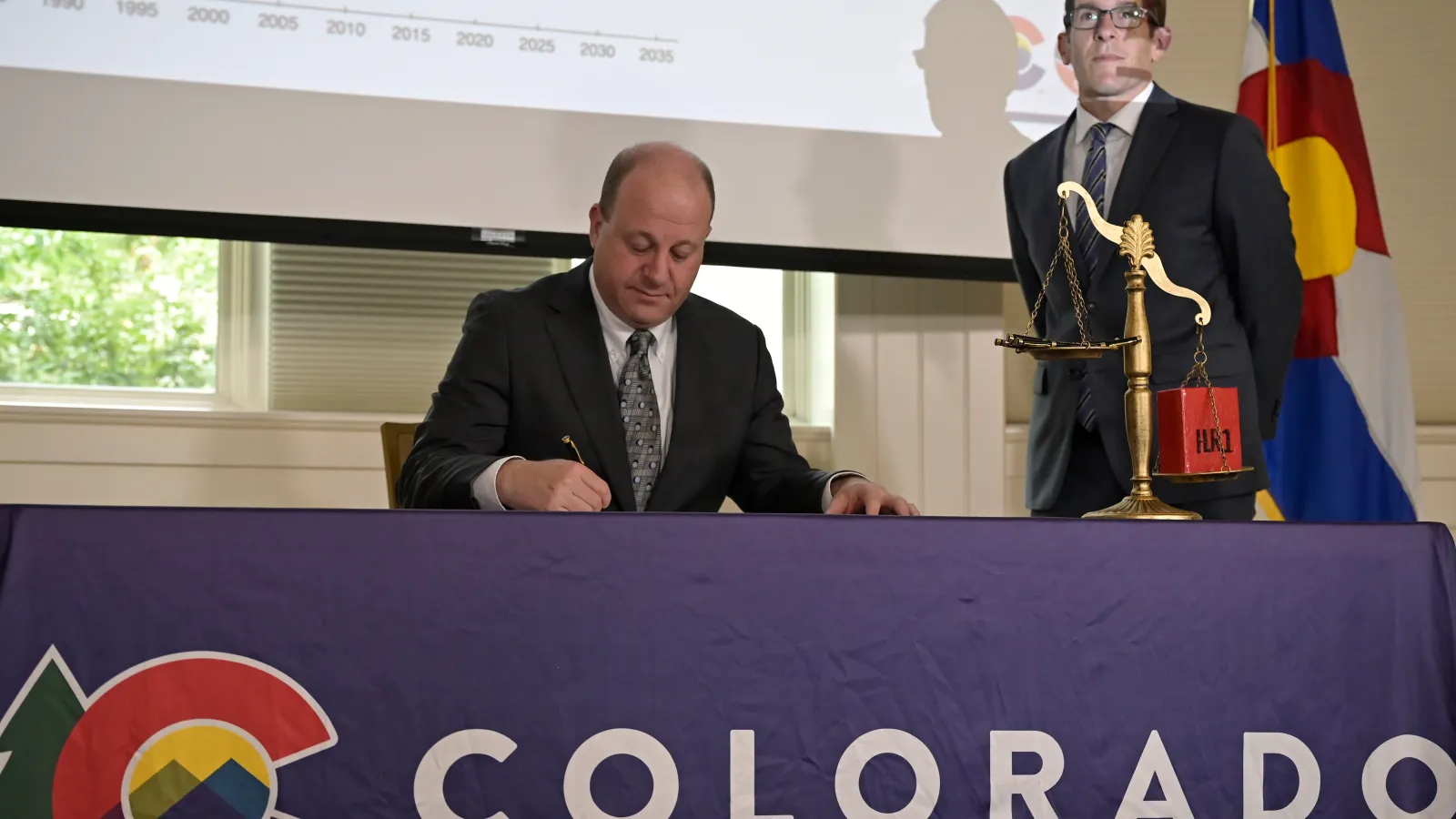By Meg Wingerter
Copyright denverpost

Therapists treating Medicaid enrollees in Colorado will have to get the state’s authorization to conduct more than 24 sessions with an individual patient in a year, as the department overseeing the program tries to rein in what it considers excessive spending.
Gov. Jared Polis ordered the Colorado Department of Health Care Policy and Financing to reinstate prior authorization for outpatient mental health care, part of his effort to close the hole that federal tax legislation blew in the state budget. The agency had previously identified prior authorization as an area for possible savings.
Changes from H.R. 1, known as the “Big Beautiful Bill,” left the state with a $783 million shortfall for the current fiscal year, and while lawmakers made some tax tweaks to partially patch it, they left much of the responsibility for making cuts to the governor.
About one-third of Polis’s $252 million in cuts and sweeps of unused funds came from the Department of Health Care Policy and Financing, which oversees Medicaid. The third-largest cut, behind partially rolling back a planned rate increase for providers and reviewing possible improper billing of therapies for kids with autism, involved allowing prior authorization when a Medicaid recipient receives more than 24 outpatient therapy sessions.
The department estimated the change would save about $6.1 million between when it takes effect in January and the end of the budget year in July.
State Medicaid programs have always had a responsibility to only cover medically necessary care, and the current budget constraints mean that the department has to carefully look for services that are driving up costs, deputy Medicaid director Cristen Bates said. The alternative is broad-based cuts to services or to the number of people covered, she said.
“We’re reviewing every single program” under Medicaid, Bates said.
The legislature passed a bill that stopped allowing Medicaid to set prior authorization for outpatient psychotherapy in 2022. Since then, the number of people receiving high numbers of sessions has increased rapidly, according to the department.
The bill lawmakers passed during the special session allowed the governor to “suspend or discontinue, in whole or in part, the functions or services of any department, board, bureau or agency of the state government” for up to three months, with the option to renew the order for an additional three months.
So far, no one has publicly challenged the legality of the law or any of Polis’ specific cuts.
About 10% of Medicaid members who received therapy sessions in the budget year that ended in June 2024 had at least 26 sessions, and the number who had more than 56 sessions in a year roughly doubled after the law changed, according to the department.
While that level of care is medically necessary for someone with complex post-traumatic stress disorder, it likely isn’t for people with more routine mental health needs, Bates said.
The department thought the change would just reduce paperwork for everyone, because it only rejected 2% to 3% of requests for prior authorization before that, Bates said. But removing the requirement seems to have led some providers to change the way they treat patients, she said.
“It seems like the rule was actually governing people’s behavior,” Bates said.
Sen. Judy Amabile, a Boulder Democrat and one of the sponsors of the 2022 bill, said she’s “disappointed” to see the state rolling back the prohibition on prior authorization for outpatient psychotherapy.
The legislature’s Joint Budget Committee will have a chance to look at the governor’s cuts and could reverse some if it determines mental health is taking a disproportionate hit, though some impact is inevitable in a tough budget year, she said.
“I feel like behavioral health is always the first thing to get cut or the last thing to be funded, and that is really shortsighted,” Amabile said.
Finding additional money to undo cuts could be difficult. The state faces a $840 million budget gap in the upcoming fiscal year, due to a combination of federal tax changes and growth in spending on Medicaid and education.
Some independent providers said they believe frequent outpatient therapy saves the state money, however.
Dr. Lisa Griffiths, a psychologist and owner of the Center for Valued Living in Denver, said she said she worries some people’s symptoms will worsen if they can’t check in regularly with their providers, forcing them to get care in more expensive settings such as hospitals.
“Our work is sort of preventive,” she said. “We’re the primary line of defense here, and we’re the least expensive” way to treat mental health conditions.
Blair Skinner, clinical director of the Early Childhood Wellness Place in Broomfield, said the department should be pleased that more members are seeking out mental health care after the stress of the pandemic and the political and economic instability of the last few years.
“That’s really a win,” she said. “Of course there’s increased mental health need right now.”
Skinner estimated at least 90% of the prior authorization requests she submitted before the law changed went through, but requiring the paperwork slows down the process. It also may force small providers to hire administrative and case management staff, rather than additional clinicians, she said.
“It’s just more work for us,” she said.
Sign up for our weekly newsletter to get health news sent straight to your inbox.



